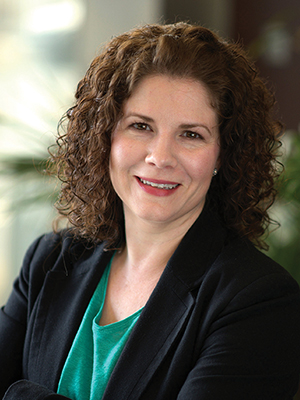 Dr. Corinne Auman
Dr. Corinne AumanDr. Corinne Auman, Certified Senior Advisor, is an experienced educator, researcher, and entrepreneur. She currently teaches in the Gerontology department at the University of North Carolina at Greensboro, is president of Choice Care Navigators, and the author of the RockingChairSecrets.com blog. She can be reached at 336-303-1419.
I was recently chatting with my friend Jennifer, whose parents live in a retirement community. I asked her, “How are your parents?”
Her response? “My parents are a mess, but that’s the new normal.”
She said this with resignation in her voice. As though she had let go of hope that it would get better.
“What’s happening?” I asked.
“They need more help at home, but they don’t want it. My Mom constantly calls me and my brothers and sister for help, because they don’t want anyone else in the house. She even calls 911 all the time, even though all they really need is someone to talk them through whatever the latest issue is.”
Boy, is she right. They are a mess.
Although Jennifer is reluctant to tell others about this mess, as though her family’s situation is unique, it actually isn’t.
Another friend recently said of her mother, “I feel like we are one fall, or one incident away from disaster. I dread the phone ringing, for fear it will be the call saying something has happened and everything will fall apart.”
Naturally, these situations are having an emotional toll on the daughters.
“I feel resentment. I want to be a daughter, not a caregiver. Not her financial manager. I shouldn’t have to manage everything about her life. She should have planned better.”
“And then I feel guilty for feeling that way. She took care of me, so I should take care of her. But it is so hard to do that while also working and taking care of your own family. I’m exhausted. And I feel trapped.”
I hear these themes over and over as I talk to friends and clients who are being sandwiched between caring for their parents and their children:
Fear. Guilt. Loneliness.
Fear over what crisis may be just around the corner.
Guilt because they resent being put in the position of making major life decisions for their parents, because they are missing time at work, and because they are missing time at home with their family.
Loneliness because they have no one to talk to about the situation, or because they feel like they shouldn’t talk to anyone about the situation.
What’s more, their already complicated lives are compounded by the complicated lives of their parents, putting them in no-win situations.
Jennifer said, “Another friend told me ‘Don’t miss your own kids growing up because you are too busy caring for your parents.’ But I can’t be everywhere at once. Someone is constantly being let down.”
These ladies are not alone.
The Family Caregiver Alliance reports that 70% of working caregivers suffer work and family-related difficulties due to their dual roles. 49% of caregivers feel they have no choice about taking on caregiving responsibilities.
Guilt and resentment also lead to loneliness, because these women feel like they cannot, or should not, talk about what is happening in their families.
“I want people to remember them the way they were at their prime of their lives. I hate for them to know what they are like now” is a common refrain. This makes being a caregiver not only stressful, but isolating as well.
It doesn’t have to be this way. While we may not be able to predict when a health crisis will occur, we can take steps to prepare for a response when they do. Putting into place the right plans and documents (e.g., Care Manager, Power of Attorney, Long Term Care Insurance) can save adult children hours of stress and heartache.
We need to apply what we learn from these struggles as we plan for our own future. As Jennifer put it, “I don’t ever want my kids to go through this. I want to make the decisions so they aren’t burdened with trying to figure out what I want and how to pay for it.”
Such planning can spare our children from the stress of caregiving that so many adult children are experiencing today.

